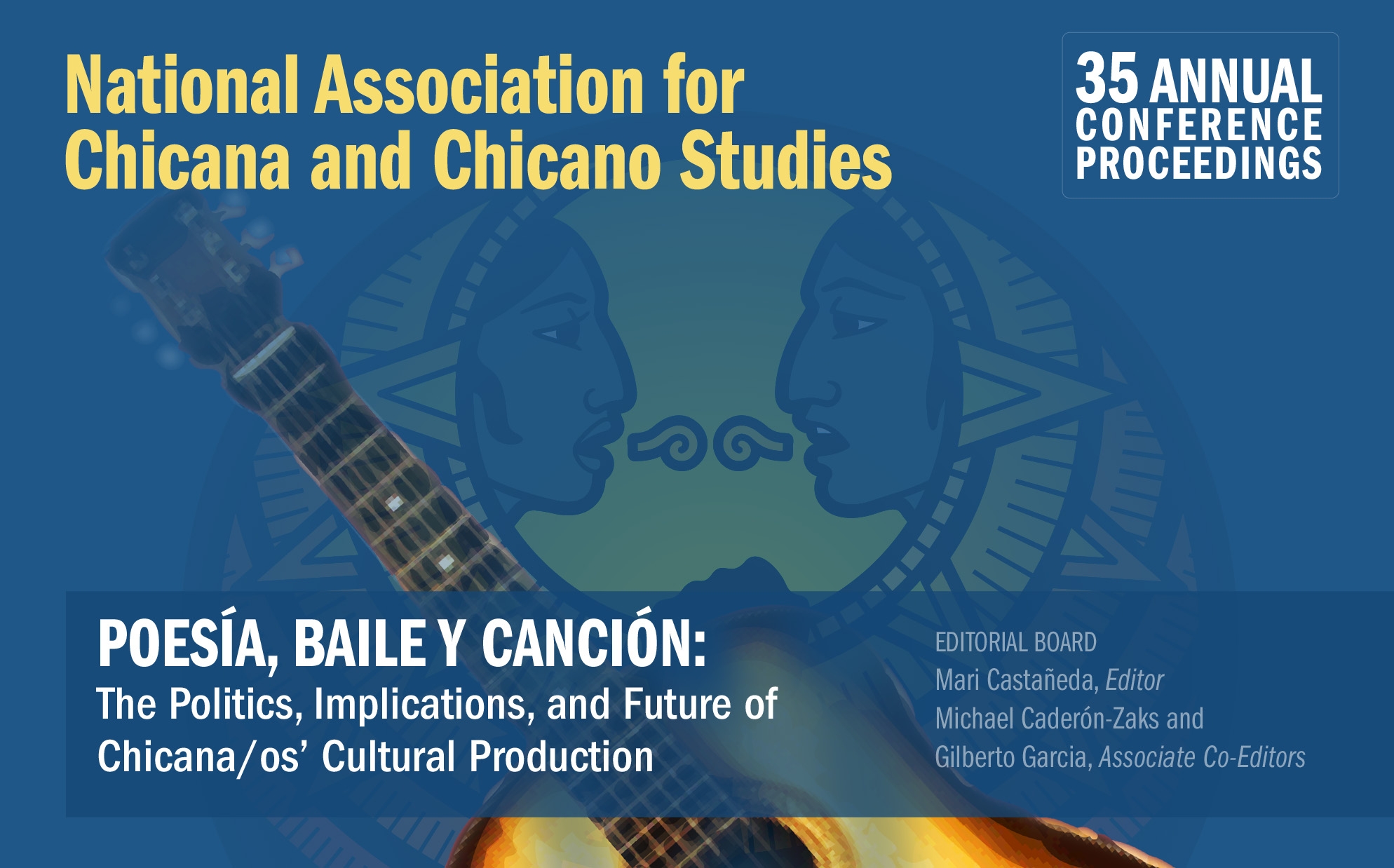Location
2008 NACCS Conference Presentation
Abstract:
The Panza Monologues is a solo performance piece both written by Virginia Grise and Irma Mayorga and also composed from contributions by Chicanas in San Antonio, TX gathered by Grise and Mayorga. In live production of the piece, Grise is the solo actor and Mayorga serves as director, dramaturge, and designer. As a whole, the play focuses on stories that hinge on the metaphor of “la panza” to articulate and describe the multiple conditions of Chicanas’ lives in terms of their physical, social, racial, and class dimensions. The piece has been performed in various locations from its inception in 2004 to the present. For their NACCS 2008 Annual Conference presentation, Grise and Mayorga composed a “performative conversation” for a session that offered (1) the genealogy of the piece’s development, (2) the differences between Grise and Mayorga’s theatrical training and work as activists, which in turn yields their aesthetic and Chicana feminist strategies employed in the performance, (3) an articulation of the play’s driving ideas and tenets in relation to Chicana/o cultural production, the socio-political conditions in San Antonio, TX, and feminist art practices, and (4) select monologues from The Panza Monologues script presented between Grise and Mayorga’s discussion of Chicana cultural expressions. This format sought to compose a presentation that experimented with the possibilities of discussing cultural production in the academic conference setting. Therefore this essay utilizes a “script” format that attempts to capture the dialogical style of Grise and Mayorga’s presentation. The essay culminates with a manifesto for “Panza Positive Cultural Production” that enumerates Grise and Mayorga’s observations and recommendations for producing Chicana/o teatro that is socially responsible and attentive to Chicana artists, Chicana/o peoples, and practice within Chicana/o cultural organizations.
Included in
Chicana/o Studies Commons, Ethnic Studies Commons, Race and Ethnicity Commons, Theatre and Performance Studies Commons
Power to the Panza: The Politics of Panza Positive Cultural Production, a Performance
2008 NACCS Conference Presentation
Abstract:
The Panza Monologues is a solo performance piece both written by Virginia Grise and Irma Mayorga and also composed from contributions by Chicanas in San Antonio, TX gathered by Grise and Mayorga. In live production of the piece, Grise is the solo actor and Mayorga serves as director, dramaturge, and designer. As a whole, the play focuses on stories that hinge on the metaphor of “la panza” to articulate and describe the multiple conditions of Chicanas’ lives in terms of their physical, social, racial, and class dimensions. The piece has been performed in various locations from its inception in 2004 to the present. For their NACCS 2008 Annual Conference presentation, Grise and Mayorga composed a “performative conversation” for a session that offered (1) the genealogy of the piece’s development, (2) the differences between Grise and Mayorga’s theatrical training and work as activists, which in turn yields their aesthetic and Chicana feminist strategies employed in the performance, (3) an articulation of the play’s driving ideas and tenets in relation to Chicana/o cultural production, the socio-political conditions in San Antonio, TX, and feminist art practices, and (4) select monologues from The Panza Monologues script presented between Grise and Mayorga’s discussion of Chicana cultural expressions. This format sought to compose a presentation that experimented with the possibilities of discussing cultural production in the academic conference setting. Therefore this essay utilizes a “script” format that attempts to capture the dialogical style of Grise and Mayorga’s presentation. The essay culminates with a manifesto for “Panza Positive Cultural Production” that enumerates Grise and Mayorga’s observations and recommendations for producing Chicana/o teatro that is socially responsible and attentive to Chicana artists, Chicana/o peoples, and practice within Chicana/o cultural organizations.

